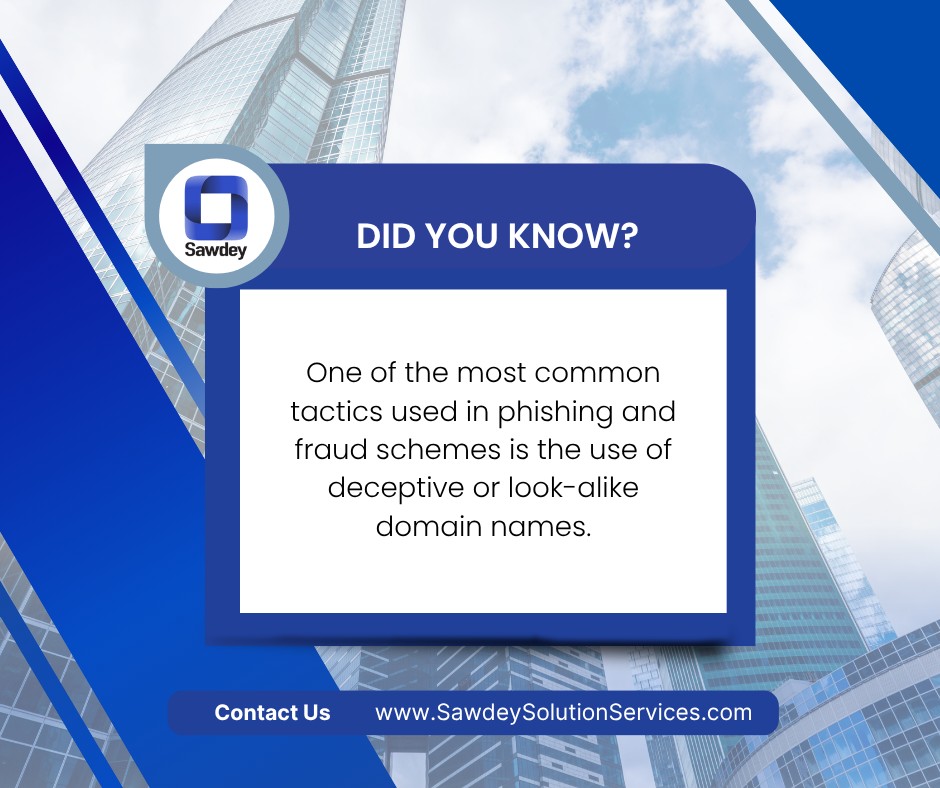Here’s a helpful tip! If you receive a suspicious or “too-good-to-be-true” email or message from a domain that looks almost correct — such as careers –sawdeysolutionservices.com instead of @sawdeysolutionservices.com — asking for sensitive information, it’s likely a scam. Cybercriminals use these fake domains to trick recipients into sharing personal or financial information.
Always double-check the sender’s email address, make sure it matches the actual company domain, hover over links before clicking, and never provide information like your address, date of birth, social security number, banking routing number, etc. unless you’re certain the request is legitimate. When in doubt, check the age and reputation of the domain or report it to the actual company. It’s always better to verify than to fall victim. #CyberSecurity #phishing #ScamAlert

